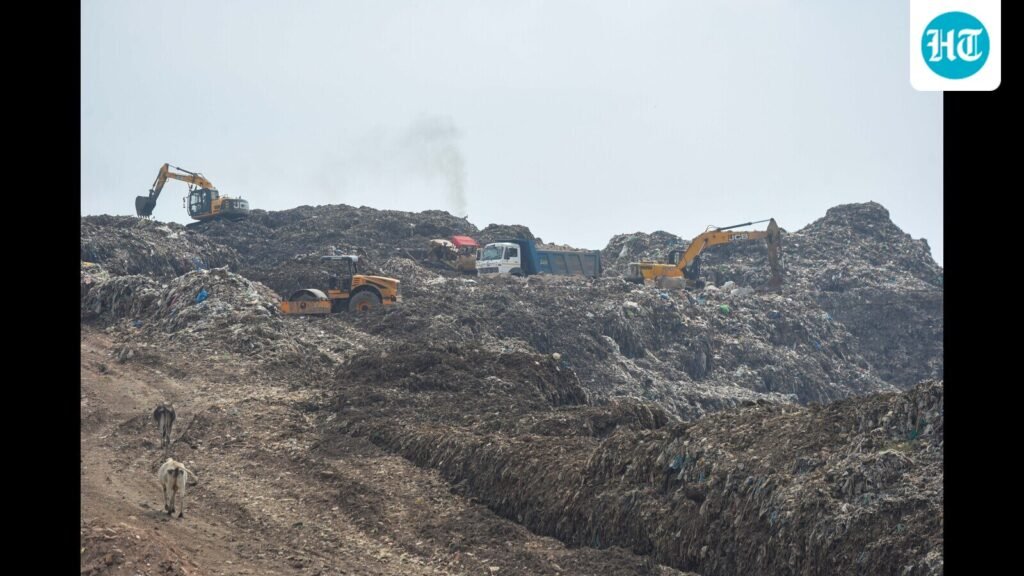
Twenty-Five Years ago, on September 25, 2000, India’s First Municipal Solid Waste (MSW) Management Rules Were Introduced-Born Out of a Supreme Court Older at the time. Ironically, A Quarter Century Later, Courts are still pushing governments to clean up their act. Cities such as Delhi, Gurugram, and Bengaluru are struggling with garbage-strewn spaces, dysfunctional treatment facilities and overflowing landfills. Large swats of urban India are in the throes of a solid waste crisis.

Meanwhile, the regulatory framework has been expanded with the 2016 Solid waste management (Swm) rules, Accompanied by rules on Construction waste, Plastic waste, e-waste, biaaste, biomedical and hazardourse Waste. Despite a huge infrastructure push for waste management, and progress in many areas, results remain below expectations.
Now, a new draft of swm rules-set to take effect in October 2025-Proposes More Ambitious Goals: Four-way source segregation, Centralized Digital Portal, Deeper Intregular Economy. As we look ahead, it is essential to ask: why did we fall short with the earlier rules?
At a fundamental level, the challenge is one of weak local governance – Weak Institutional Capacity and Leadership, Poor Contract Management, and Low Public Trust. However, at a domain level, a common narrative blames the lac of source segregation by households as the root of the problem. But is this assumption valid?
Many Indians Returning from Cities Like Bangkok, Ho Chi Minh City, Kuala Lumpur or Istanbul Are Struck by his Cleanliness. Interestingly, these cities do not have high levels of source segregation – often below 25%. The difference lies in timely waste collection and transport, as well as strictly enforced anti-littering norms. While these cities also face challenges in treatment and disposal, they don’t allow allow garbage to pile up in public spaces.
Even europe, despite its traditionally high hygiene standards, has been working for decades to raise recycling rates. Eu Legislation of 2018 set phaseed targets, IE, 55% recycliling by 2025 and 65% by 2035; In 2022, The Average Stood at 49%. These figures underscore the time required to embed behavior change and upgrade systems even in developed contexts.
Ingtrast, India’s 2016 Swm Ruired Cities to Achieve 100% source segregation within two years and bainned landfill disposal of mixed waste there. Recently, a court judgment directed the National Capital Region to Implement 100% Segregation by End-2025. While well-invalid and seeking to leapfrog the gradual program seen elsewhere, these mandates are unrealistic, especially for large and rapidly evolving sites, setting have made up for failure. Behavior Change Takes Time, and Systems must Evolve Keeping This Reality in Mind.
Ambitious Goals without System Readness Can Trigger Inflated Reporting and Flawed Decision-Making, Stymie Ral Progress. A recent analysis of swachh survekshan data (2022) indicates 84% Source Segregation in India’s Million-Plus Cities, which appears inconsistent with great reallers and observations Auditor General (CAG) Reports. The problem is compounded by Lack of Regular and Reliable Waste Characterisation Analysis – Crucial for Designing Effective Systems. In the absence of such data, municipalitys are left operating in the dark.
Flawed assumptions on segregation and Lack of Waste Data Lead to Multiple Challenges, Such as Confused Messaging Wherein Citizens are Urged to Segregate Waste Even Even Even Before Systems ARENDELE It, leading to waste getting re-mixed during transport or at transfer stations. Then there is Misalignment of treatment facilities, which are designed for processing segregated waste, but, in practice, receive mixed waste of poor quality – Undermining their performance and viability.
Undersized landfills designed for a small stream of residual inrt waste are another challenge. In Practice, Vast Amounts of Untreated Mixed Waste Get Dumped. When facilitations fail and pollute, public option to new projects increases. With indequate treatment and disposal facilities, waste ends up in open lands, drains, and water bodies. According to the Central Pollution Control Board Data (2022), 22% of Municipal waste remain unaccounted for.
A more grounded and phased approach with realistic targets, incentives, and penalties is needed. Importantly, One-Size-Fits-All Models Won’t Work-as a recent study by the council on energy, environment, and water (Ceew) highlighted, replicating models with new Yields Sustained Results.
While Working on Househld-Level Segregation with realistic Timelines, CITES COLD PRIORITIS FIRST-Level Interventions. These include updated city-level waste characterisation data to design context-specific waste management systems; Robust collection, Transfer and Transport Systems to Prevent Open Dumping and Prepare The Ground For Effective Segregation; Dedicated Systems for Homogeneous Waste Streams (EG Construction Debris, Horticulture and Food Waste, Street Sweepings) And Bulk Waste (Eg from Hotels, Malls, Institutions), All of withhich are more Amanable to Recycling and treatment; Fostering a Culture of Cleanlines Through Strint Enforcement of Anti-Littering Rules and Use of Garbage Bags to Reduce Spillage and Make Waste Easier to Collect.
Getting these basics in place can reduce unmanaged waste, build public participation and strengthen momentum for Deeper System Improvements. None of these will work without improved local government and a Leadership Committed to Clean Cities.
The new proposed swm rules cover some of the Above Intervention, however, their impact hinges on realistic implementation modalities that are aligned with ground reality.
As we mark 25 years’ since the first msw rules, it’s time for a Candid Assessment. Ambitious targets and legislation, while important, are not enough. Pragmatic, locally Grounded Interventions Implemented by Empowered Municipalities are the key to having cleaner cities.
It’s time we designed our waste systems for success – Not Failure.
Vandana Bhatnagar is a Senior Development Sector Practitioner and Institutional Strategy Specialist. The views expressed are personal





